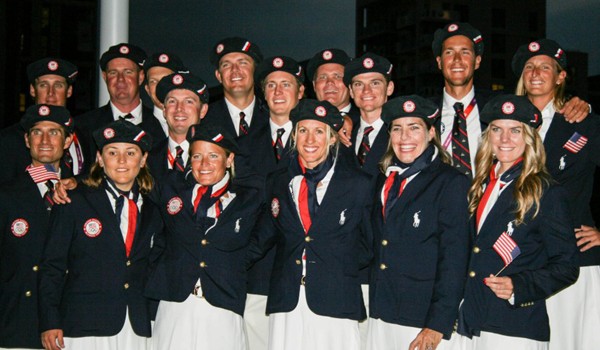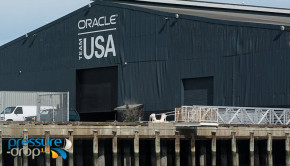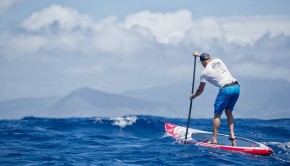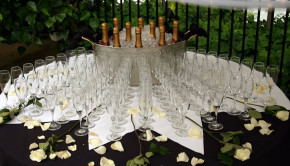Review – 2012 U.S. Olympic Sailing Team
Published on August 15th, 2012
 The United States didn’t win an Olympic sailing medal for the first time since the 1936 Berlin Games… the boycott of the 1980 Games notwithstanding. This shutout was not the plan they had hoped for at the 2012 Olympic Games in Weymouth, Great Britain (July 29-Aug. 11).
The United States didn’t win an Olympic sailing medal for the first time since the 1936 Berlin Games… the boycott of the 1980 Games notwithstanding. This shutout was not the plan they had hoped for at the 2012 Olympic Games in Weymouth, Great Britain (July 29-Aug. 11).
Dean Brenner, who has been Chairman of the U.S. Olympic Sailing Program for eight years, is stepping down. The position has a two term limit, and his successor Josh Adams is ready to take over September 1st.
As the Games concluded, Scuttlebutt editor Craig Leweck spoke to Dean about the progress of the team, its failures at the 2012 Games, and the future of the U.S. program.
1. You began this position as a volunteer. How has it evolved?
Except for one instance, the job had always been a part-time volunteer position. Those were the terms I accepted under in 2004, but we knew right away that the world of Olympic sailing was becoming more professional, we needed our sailors to be more full-time, and it is pretty hard to ask a full-time sailor to be led by part-time leadership. So we were on this path toward making my position full-time during my entire eight year term. I did four years of part-time volunteer, and four years in a part-time paid position, and now my successor will be taking over as a full-time paid position.
2. When looking at the progress of the program, there are two sides: the sailor side and the administration side. Explain the progress on the later?
When I took over in 2004, our only staff was two administers (Gary Bodie and Katie Kelly) and two coaches (Skip Whyte and Luther Carpenter). We didn’t even have a Paralympic coach. Now we have a full-time staff of nine (ten if you include me). I know people may view the growth on the administrative side as costly, but the growth was a result of the workload, and if you want to seek out volunteers to fill them, the talent pool significantly shrinks.
3. How important is team performance in terms of seeking team funding?
It is definitely important. I have been saying for eight years that results matter, so it would be disingenuous for me to change that tune. So yes, results matter, and I contend that our results for the last eight years have in general been very good. They weren’t good at these Olympics, but they have been good, and it is important to the funding.
But it is important to keep in mind that we are a program in transition. There are other elements to the long range plan that we have not executed yet. For example, the big initiative from a program perspective in the 2005-8 quad was to add sponsorship and learn how to fundraise. We had to grow our revenue, and we did that. Our budget on an annual basis has grown 400% in the last eight years. It was about a million a year when I took over and it’s about four million now.
Our big initiative this quad was to change our culture, create a supportive atmosphere, to make our team training more collaborative. This also has a commercial element to it which gives donors and sponsors something to get excited about. But there are clearly some other pieces that we haven’t gotten to yet and those are important too.
We need to do a much better job on pipeline development, and we need to do a much better job on talent retention, so that we can get multiple quads out of certain people. So we are not there yet, and even if we had one two or three or four medals, we still would be saying we are not there yet. We still have a lot of work to do. That hasn’t changed.
4. Any problems leading up to the event that may have affected results?
None. We spent significant time here over the past four years to understand the venue. We got here on July 17, a full ten days before the regatta. There was no jetlag. Everyone was rested and ready. There were no equipment problems. We were comfortable here. We had our routine. I believe our lead-in plan covered all the bases, and I have gotten no indication that we made any errors in this plan.
5. Performance is the bottom line, and the team did not perform very well. What happens now?
Here is what’s happening. As is customary after each Olympics, an independent panel review will take a look at what we are doing. This is being headed by US Sailing President Gary Jobson and my successor Josh Adams, who are now organizing the panel, and it is the intent of this process to determine what changes might be needed.
There is going to be a lot of analysis of what we did right and wrong, and that’s okay. That’s healthy. But it’s also going to be possible to overreact. You can do a lot of things right and still not win your regatta. I think we were good enough in a lot of classes, but at these Games, we didn’t get it done.
I am not sure what we would have done differently, but I can share some things that kept us off the podium. First off, in about half the events, we were a long shot at best. So to say we did not win medals in any of the ten events is correct, but we weren’t expected to either. To say that we failed in those classes, at the Olympics, is unfair. The surprises for us were to fail in the Women’s Match Race, Finn, Laser Radial, and Women’s 470. We also thought our 49er team was capable of more, though by no means they were not a strong medal contender.
As for execution, at times we were inconsistent on the starting line. In a really good fleet like in the Olympics, if you don’t get off the line it’s hard to post low scores. We also had a couple of events where the toolbox for all wind conditions was not as versatile as it needed to be, and they didn’t get there conditions.
But that door swings both ways, as when Zach Railey won his silver medal at the 2008 Games in China, it was a light air regatta during the Finn event, and Zach was the lightest by 10 pounds. If it had been windier, like it was for the other events during the second week, he may not have medaled. So there is an element of whether you will get your conditions. For Amanda Clark and Sarah Lihan, the Women’s 470 event was in the second week which was lighter, and that was a tough condition for them while they are among the fastest when it is breezier.
6. Were there any signs leading into the Games that your medal contenders may stumble?
An example could be Zach (Finn) and Paige (Laser Radial) Railey. They were definitely ready for the Games, but they each had a bad week. But you could also say that Paige finished in about the same position as she did at the 2012 Worlds in the spring. Same goes for Zach too, so there were some troubling warning signs at the 2012 Worlds. But I will also say that for very few of our sailors was the 2012 Worlds a priority event. The priority events was the 2011 Worlds in December for qualifying reasons, Sail For Gold at the Olympic venue in June, and then the Olympics in July and August.
7. For all the events other than Match Racing, the Trials were completed eight months ago at the 2011 Worlds in Perth, Australia. Do you think now it was too early to maintain the competitive edge?
The gap between the Trials and the Games was smaller by two months than it was four years ago. In fact, most countries determined their team when we did, so we were not alone. But if you want to ask if we were to do it differently, than the question becomes how. If you are going to use an international event for the trials, which we were absolutely committed to, than you must look to see which events are planned since we do not schedule the events. This was the best plan as we saw it, and again, we were not alone in this thinking.
8. In the Women’s Match Race, the American team was eliminated by their training partner. Is there a sentiment that the US helped Finland get better than them?
Yes, Anna Tunnicliffe’s team was eliminated by their partner, who is also the reigning World Champion, but it is not uncommon for other countries to have international training partners. For Anna, it was the luck of the draw that they faced their partner in the quarterfinals. We did focus this quad to work within our team, but all our sailors still had international partners too, though the relationships may not have been as connected as they were in previous quads.
9. Some people see the national team as this all controlling entity, but your reach extends only so far. What needs to happen in the U.S. that is not presently occurring?
The top of my list is that our talent pipeline is not yet where it needs to be. Let me preface this by saying there is great junior development happening throughout the country. Lots of great work being done, coast to coast. But we made the decision in 2007 that we wanted to focus on the tip of the pyramid and develop an elite program, and we haven’t completely figured that out yet.
Some of our initiatives have been positive, but the program probably needs to be bigger, and it needs to age some so its participants can make the transition from junior sailing to the Olympic program. So we don’t yet have a good pipeline of youth talent on an annual basis coming into our program. Sure, we would like to have a little more money, but we will always say that, so that is an ongoing need.
Interestingly, the U.S. won the medal count at the 2010 and 2011 ISAF Youth World Championship, but this year we did not medal in any of the eight events. Some of our top sailors had aged out. So the challenge going forward, the next great opportunity to advance the Olympic program, is to advance the youth development.
10. Surely the U.S. must have some advantages that can be maximized. What might they be?
The U.S. is unique in that it has a college racing program. No other country has it. This is a great resource, and the Olympic program has made some progress in how to connect with college racing. I think there is a big opportunity there, to leverage it as a type of a farm system, and we haven’t fully taken advantage of it yet.
Ideally, we need to partner with the collegiate program so that while people are competing collegiately are also doing some Olympic sailing. I don’t think it needs to be one or the other; I think both have value for developing our athletes. The changes in Olympic sailing – shorter courses sailed in smaller boats – is getting closer to the type of racing more common in college.
But our sailors need also to develop technical skills (ie, rig tuning, sail shape) before college, and keep refining those skills during college. Our future athletes need to be developing these technical skills at a younger age, keep working on them while also learning the college game, and then hit it hard whenever they are ready to finish college sailing.

Photo by Dean Brenner









 We’ll keep your information safe.
We’ll keep your information safe.